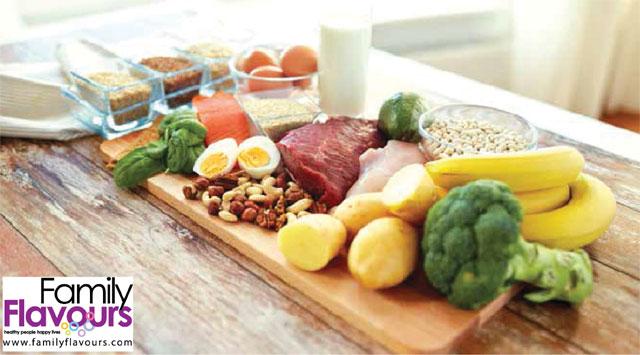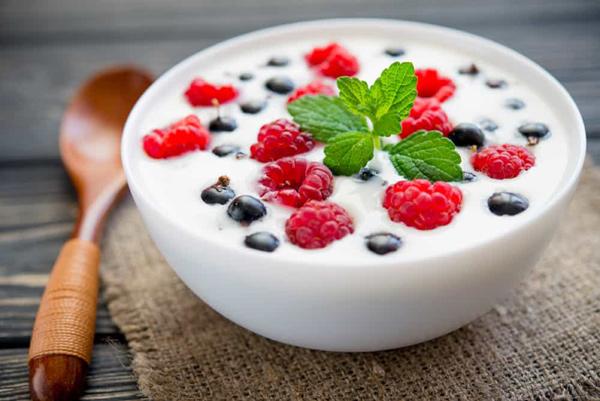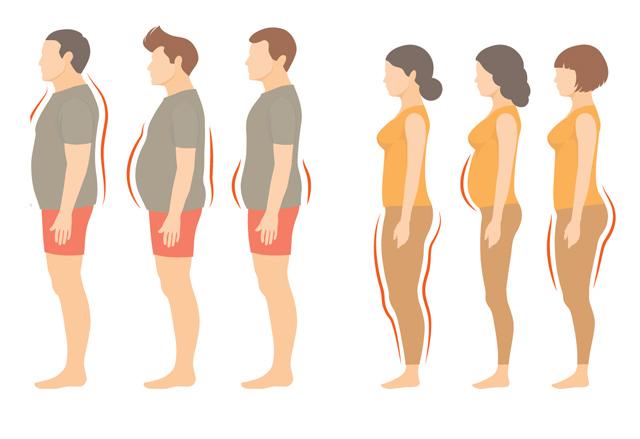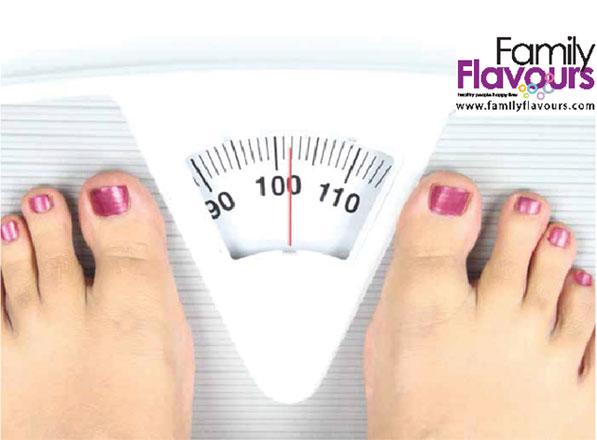You are here
Speed up your metabolism!
Mar 25,2018 - Last updated at Mar 25,2018

Photo courtesy of Family Flavours magazine
Is a sluggish metabolism keeping you from losing weight or increasing your risk of illness? There are several quick and easy lifestyle changes you can make to boost your metabolism, make your body run more efficiently and reach your weight-loss goals.
Eat enough!
Did you know that dieting actually lowers your metabolism? Cutting your caloric intake is the foundation of weight loss, but eating too little will not help maintain your ideal weight in the long run. Your body requires calories to perform all of its necessary functions, so when this energy is not available, the body actually slows down its metabolic rate in order to conserve energy and keep everything running.
Takeaway message here? Do not follow fad diets that are low in calories and depend on a select few foods. You will suffer less, plus you will protect your body from breaking down muscles and reducing its water content.
Start with making varied food choices, choosing all food groups and eating regular small meals and snacks. These include:
Colourful fruits and vegetables, especially dark green leafy vegetables, are rich in chlorophyll, which helps to rebuild and replenish your red blood cells, boosting your energy.
Dairy such as fresh milk and yoghurt help you maintain your blood sugar, while labaneh (strained yoghurt) and cheese offer a good source of bacteria for a healthier bowel movement.
Fish, meats and chicken marinated with yoghurt and seasoning or with added kiwi and pineapple (to enhance its digestibility).
Protein-rich foods
Protein has a huge impact on your body-fat percentage. Since increasing muscle mass can boost metabolism, eating more protein helps speed up your metabolism. Here is how this works: foods rich in protein consume a
lot of energy from the body and control appetite. Protein is made up of amino acids that help build, repair and maintain muscle tissue, but without enough protein, the body falls into a catabolic state where it fuels itself by breaking down muscle, rather than fat, for energy. Researchers found that obese adults who ate three servings of fat-free yoghurt a day as part of a reduced- calorie diet lost 22 per cent more weight and 61 per cent more body fat than those who simply cut calories and did not bone up on calcium. Yoghurt eaters also lost 81per cent more fat in the stomach area than non-yoghurt eaters.
Remember that protein is not always from meat sources. Asparagus, mushroom and legumes are all rich in protein. So try to mix them in your dinners to help you control elevated blood sugar levels during the night.
Drinks that
contain antioxidants
White tea and herbal teas raise your body metabolism better than coffee due to their high antioxidant content. Coffee lovers need not worry — you still can have semi- roasted or green coffee beans, as they also increase your body’s metabolism, especially when you mix them with herbs such as turmeric, cloves, cardamom and cinnamon. Studies also show that mixing instant coffee with coconut milk helps control your appetite for longer.
Deep red fruits
Berries, strawberries and prunes are rich in antioxidants and low in calories. They boost metabolism and enhance your immune system, making your body more stable and balanced.
Drinking water ice cold
Body temperature affects your metabolism! If it is very cold or very hot, the rate of metabolism goes up by about 10 per cent. You can manipulate your body temperature
by some food choices like chilli or cinnamon — they can increase your blood circulation, raise your body temperature and even reduce your blood sugar. Cold water can reduce the diametre of your blood vessels and enhance blood circulation as it forces the body to expend more energy (and calories) in order to warm it up to body temperature.
Negative calorie foods
Although no food is actually “calorie free”, there are certain foods that have such few calories that the act of digestion in the body will burn more calories than the food itself, creating a negative calorie balance. For example, a 25 calorie piece of broccoli (100 grams) requires 80 calories to digest, which results in a net loss of 55 calories! Some great foods that are extremely low in calories and require a lot of energy for the body to break them down include asparagus, broccoli, cauliflower, celery, lettuce and zucchini and fruits like berries.
Ginger
You can burn fat by consuming ginger because it speeds up the metabolism. I recommend that you avoid having ginger on an empty stomach and encourage you to use it after a high-protein breakfast or lunch.
Fibre
Complex carbohydrates and fibre raise your metabolism by keeping insulin levels low after you eat. Increase in the production of insulin hormone, which is a result of a diet rich in simple sugars or high salt intake, sends a signal to the body that “it’s time to start storing fat”. In order to store fat, your body has to slow down the metabolism, causing you to burn fewer calories. For example, oatmeal breaks down slowly in the stomach; it causes less of a sharp increase in insulin levels than pastries or white bread rich in yeast. Plus, these kinds of foods accumulate carbon dioxide in the body and reduce oxygenation to cells. Therefore, white bread rich in yeast and pastries reduce your metabolism.
Body temperature affects your metabolism! If it is very cold or very hot, the rate of metabolism goes up by about 10 per cent. You can manipulate your body temperature
by some food choices like chilli or cinnamon — they can increase your blood circulation, raise your body temperature and even reduce your blood sugar. Cold water can reduce the diametre of your blood vessels and enhance blood circulation as it forces the body to expend more energy (and calories) in order to warm it up to body temperature.
Reprinted with permission from Family Flavours magazine
Related Articles
By Ayah MuradClinical Dietician Milk, yoghurt and eggs are an important source of protein, vitamins and minerals, as well as good fats.
Clinical Dietician Body shape categorisation (apple, pear and so on) has left many of us focused on our body shape.
By Dr Renad SeheimatClinical Pathologist & Laboratory Medicine Specialist Are you finding weight difficult to lose?














